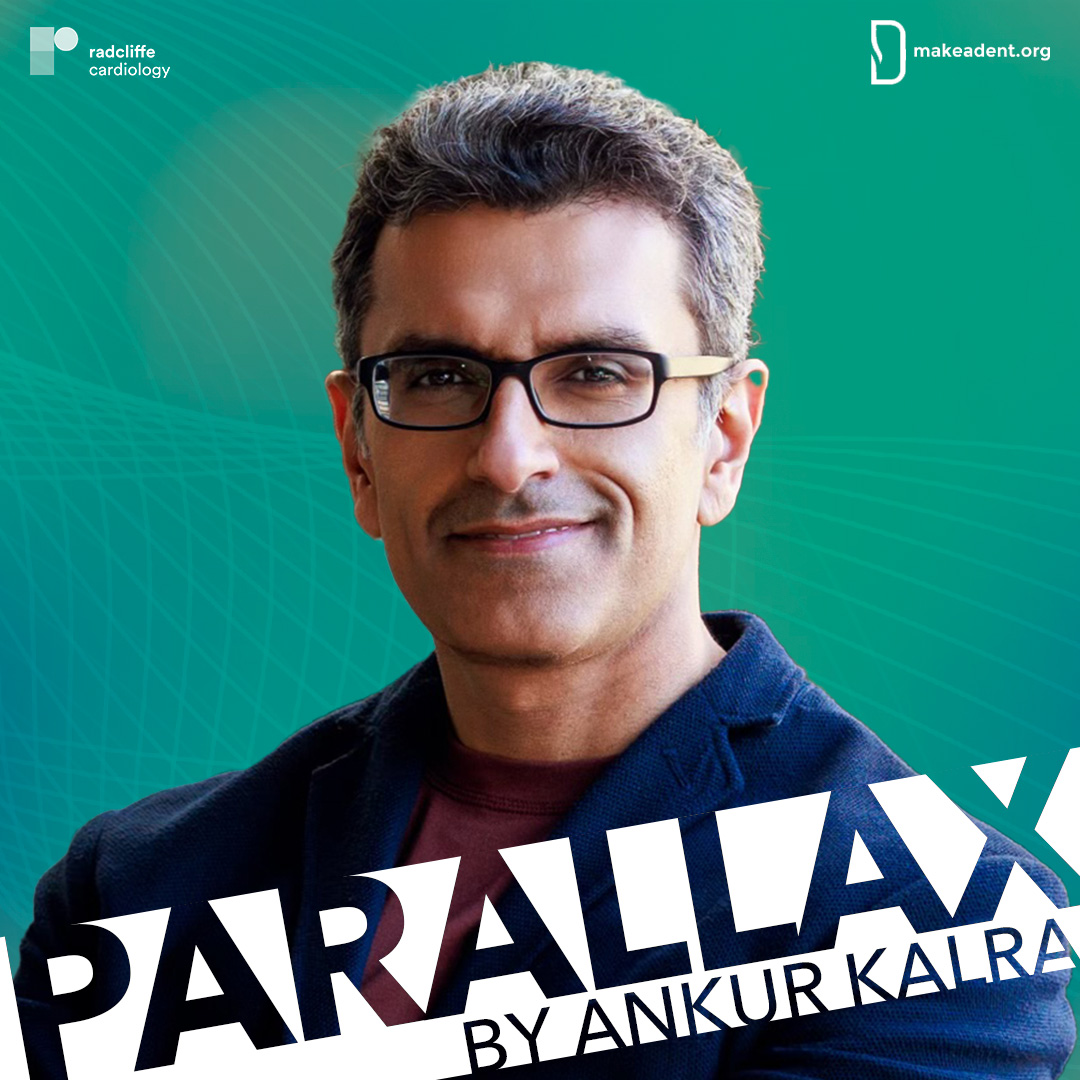
The Parallax Podcast
Join Ankur Kalra, MD as he shows you a different side to cardiovascular care, management and science in his fortnightly podcast series called Parallax.
Published every second Monday, listen to Ankur’s conversations with legendary cardiologists, critical reviews of key congresses and late-breaking trials, and concise summaries of the best literature in cardiology.
We want to make this podcast about you, and for you! Please email us critical thoughts, comments and questions for Ankur at podcast@radcliffe-group.com.
Read MoreRead Less
All Episodes

Ankur is back with his second #AudioArticle! This week he spoke with Santiago Garcia from the Minneapolis Heart Institute about Santiago’s US Cardiology Review 13.1 article on the role of high-sensitivity cardiac troponin (hscTn) assays and their ability to rapidly rule in or rule out acute coronary syndrome (ACS) with improved sensitivity.
Chest pain is one of the most common reasons for an emergency room visit in the US, with almost 6 million ER visits annually, yet there is no consensus on how to compare the results from various hscTn assays. Tune in to hear Santiago outline the advantages and limitations of using hscTn as a standard biomarket to evaluate patients with suspected ACS in the ER.
Hosted by @AnkurKalraMD. Produced by @RadcliffeCardiology.
Read More
Chest pain is one of the most common reasons for an emergency room visit in the US, with almost 6 million ER visits annually, yet there is no consensus on how to compare the results from various hscTn assays. Tune in to hear Santiago outline the advantages and limitations of using hscTn as a standard biomarket to evaluate patients with suspected ACS in the ER.
Hosted by @AnkurKalraMD. Produced by @RadcliffeCardiology.

In our first episode, Ankur explains his vision for and inspiration to start ‘Parallax’, and speaks with Chad Kliger from Lenox Hill Hospital in New York about conduction abnormalities after transcatheter aortic valve replacement (TAVR/TAVI), a review article published in US Cardiology Review 13.1 Ankur and Chad look at conduction abnormalities after TAVR/TAVI with a focus on basic conduction system anatomy in relation to the aortic valve, the mechanism, incidence, predisposing factors for occurrence, impact on mortality and finally, proposed treatment algorithms for management. Hosted by @AnkurKalraMD. Produced by @RadcliffeCardiology.
Read More

Ankur is back with his second #AudioArticle! This week he spoke with Santiago Garcia from the Minneapolis Heart Institute about Santiago’s US Cardiology Review 13.1 article on the role of high-sensitivity cardiac troponin (hscTn) assays and their ability to rapidly rule in or rule out acute coronary syndrome (ACS) with improved sensitivity.
Chest pain is one of the most common reasons for an emergency room visit in the US, with almost 6 million ER visits annually, yet there is no consensus on how to compare the results from various hscTn assays. Tune in to hear Santiago outline the advantages and limitations of using hscTn as a standard biomarket to evaluate patients with suspected ACS in the ER.
Hosted by @AnkurKalraMD. Produced by @RadcliffeCardiology.
Read More
Chest pain is one of the most common reasons for an emergency room visit in the US, with almost 6 million ER visits annually, yet there is no consensus on how to compare the results from various hscTn assays. Tune in to hear Santiago outline the advantages and limitations of using hscTn as a standard biomarket to evaluate patients with suspected ACS in the ER.
Hosted by @AnkurKalraMD. Produced by @RadcliffeCardiology.

In our first episode, Ankur explains his vision for and inspiration to start ‘Parallax’, and speaks with Chad Kliger from Lenox Hill Hospital in New York about conduction abnormalities after transcatheter aortic valve replacement (TAVR/TAVI), a review article published in US Cardiology Review 13.1 Ankur and Chad look at conduction abnormalities after TAVR/TAVI with a focus on basic conduction system anatomy in relation to the aortic valve, the mechanism, incidence, predisposing factors for occurrence, impact on mortality and finally, proposed treatment algorithms for management. Hosted by @AnkurKalraMD. Produced by @RadcliffeCardiology.
Read More
What our listeners say








